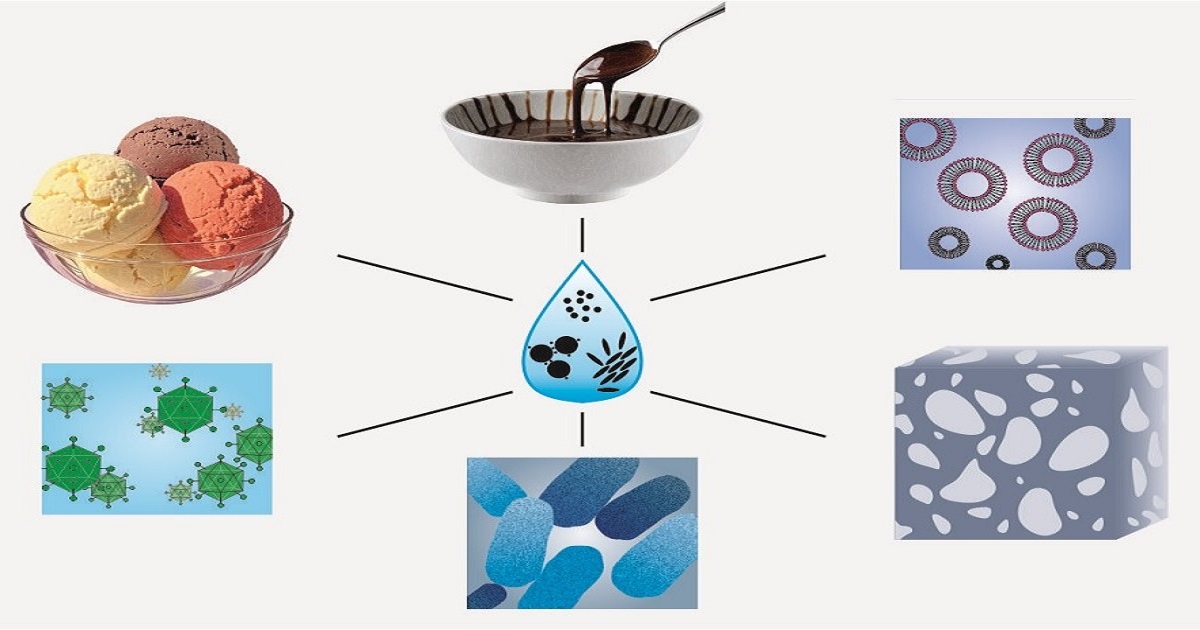Biocolloids and Biointerfaces: 2nd Edition
A special issue of Colloids and Interfaces (ISSN 2504-5377).
Deadline for manuscript submissions: closed (1 July 2025) | Viewed by 18052

Special Issue Editors
Interests: colloid and interface science; biomaterials and nanomaterials; liposomes
Special Issues, Collections and Topics in MDPI journals
Interests: surface forces; friction; lubrication; lipids; liposomes; surfactants; self-assembly; coffee ring effects; nanostructured surfaces; polymer brushes; X-ray reflectivity; neutron scattering; biolubrication; bacterial membranes; nanotoxicity; deep eutectic solvents
Special Issues, Collections and Topics in MDPI journals
Interests: dynamics and mechanics of liquid interfaces; thermodynamics of adsorption of surfactants and proteins; interfacial interactions and 2D rheology; stability of foams and emulsions
Special Issues, Collections and Topics in MDPI journals
Special Issue Information
Dear Colleagues,
Biocolloids and biointerfaces are key aspects in the multidisciplinary research field where the fundamentals of colloid and interface science meet naturally occurring or bioinspired systems. This multidisciplinary complexity demands insights and input from biology, pharmacy, and medicine, in addition to classic colloid and surface chemistry. Progress in this area will require collaboration from these different disciplines, creating scientific synergy. Such advancement of knowledge of biocolloids and biointerfaces is highly relevant and, indeed, urgent. This Special Issue, following the success of the first edition, aims to provide a forum for the dissemination of the latest information on aerosols to understand the infection route, the impact of particle-like viruses on the mucus layer in the lung, as formed and stabilized by pulmonary surfactants, the route for the treatment of lung diseases, and the design of face masks to optimize their efficacy.
Dr. Aleksandra Szcześ
Prof. Dr. Wuge Briscoe
Dr. Reinhard Miller
Dr. Milad Radiom
Guest Editors
Manuscript Submission Information
Manuscripts should be submitted online at www.mdpi.com by registering and logging in to this website. Once you are registered, click here to go to the submission form. Manuscripts can be submitted until the deadline. All submissions that pass pre-check are peer-reviewed. Accepted papers will be published continuously in the journal (as soon as accepted) and will be listed together on the special issue website. Research articles, review articles as well as short communications are invited. For planned papers, a title and short abstract (about 100 words) can be sent to the Editorial Office for announcement on this website.
Submitted manuscripts should not have been published previously, nor be under consideration for publication elsewhere (except conference proceedings papers). All manuscripts are thoroughly refereed through a single-blind peer-review process. A guide for authors and other relevant information for submission of manuscripts is available on the Instructions for Authors page. Colloids and Interfaces is an international peer-reviewed open access semimonthly journal published by MDPI.
Please visit the Instructions for Authors page before submitting a manuscript. The Article Processing Charge (APC) for publication in this open access journal is 1600 CHF (Swiss Francs). Submitted papers should be well formatted and use good English. Authors may use MDPI's English editing service prior to publication or during author revisions.
Keywords
- bioinspired colloids and interfaces
- interfacial properties of adsorbed biosurfactants and biopolymers
- pulmonary surfactants—micelles and vesicles as delivery systems
- bacteria and viruses as colloidal systems
- biochemical and tissue engineering
- soft matter in food
- model membranes
- bioaerosols
Benefits of Publishing in a Special Issue
- Ease of navigation: Grouping papers by topic helps scholars navigate broad scope journals more efficiently.
- Greater discoverability: Special Issues support the reach and impact of scientific research. Articles in Special Issues are more discoverable and cited more frequently.
- Expansion of research network: Special Issues facilitate connections among authors, fostering scientific collaborations.
- External promotion: Articles in Special Issues are often promoted through the journal's social media, increasing their visibility.
- Reprint: MDPI Books provides the opportunity to republish successful Special Issues in book format, both online and in print.
Further information on MDPI's Special Issue policies can be found here.
Related Special Issue
- Biocolloids and Biointerfaces in Colloids and Interfaces (14 articles)








